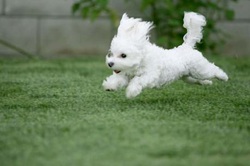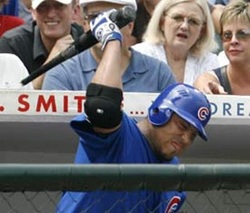Blog
Postings arise as time permits
and inspiration hits. Contact me
to request a special topic!
and inspiration hits. Contact me
to request a special topic!
|
Early in the process of learning new music, I generally experience the following stages:  1. Sheer excitement - characterized by wild sight-reading with little to no regard for mistakes  2. Childlike optimism - characterized by a bizarre joy for drilling technique and fundamentals, accompanied by frequent positive visualizations of future performances  3. Reality strike - characterized by the identification of true trouble passages, occasionally leading to angry practice This concept of angry practice is something I have been focusing on in my latest adventure into new repertoire study, and today was my first instance of its ugly head rearing in a practice session. I chose the image of super-angry "El Toro" above in part because he is, indeed, super-angry, but also in part because angry practice became a clear tendency of mine on the baseball (softball) diamond. To this day, my dad will reference the softball version of angry-practicer Cayla whenever I describe coming up against failure. I spent a good deal of my youth softball days as a pitcher, and I would feel the anger boil almost every time I just couldn't get the sinker to sink or the change-up to change up. Or the strike to be a strike. I would stand on the mound and set my jaw (my muscles clench a little just thinking about it). I would breathe like a bull about to skewer a toreador, and I would snap the ball in my glove. Snap, snap, snap. That's what we do as musicians in the same situation. Cracking the articulated A every time? MASH THAT VENT KEY! Uneven sixteenth notes? TAP YOUR FOOT REALLY HARD! AND SLAM YOUR FINGERS! Under-supported interval slurs? PLAY THEM REALLY LOUDLY! Unsurprisingly, these overly-physical, emotionally-driven are not always conducive to good learning. More often than not, the extra drive (my polite way of saying blind anger) drives up the tempo and dynamic of our practice sessions, making it even less likely that we succeed. Contrary to the advice you may expect, however, I am not about to tell you to calm down. Firstly, rarely are emotional states truly in our control. Secondly, being angry means that you care, and that is wonderful. Thirdly, emotion drives our expression far more than flawless technique. This guy may have some expressive issues - - but, you know what, so does this guy: So what do you do?
Angry practice is not good, but anger is not bad. Rather than rattle off a string of unsupported advice, I would rather simply reflect on how I am currently dealing with this trend in my own practice. For me, the answer to this contradiction lies in the fact that the anger is energy, and we all need energy in some facet of our playing. Focus the fundamental raw energy of the anger on the things in your own personal playing that need an extra kick - for some that is grounded connection with the chair or floor, for others it is embouchure engagement. For us all it is probably airspeed and motion through the phrase or between note changes. I tried this today in one particularly troublesome measure of Bozza's Recit, Sicilienne, and Rondo that I am planning to perform in July. After spending the standard five minutes letting my angry energy reveal itself in the blunt force trauma to my fingertips as I wildly slapped at an E to F-sharp connection, I stepped back (literally, took a little walk) and contemplated where I could better use that energy. In this case, I needed a more successful voicing, and I was pleasantly surprised at the change in atmosphere of my practice session after. Success! My angry practicing had become energetic focus. Now... on to the task of replicating this experience. What ways have you found to redirect or defuse angry practicing? Really, I'm curious. Comment away!
14 Comments
After my most recent writing haitus, I struggled over choosing which topic would relaunch my blogging. Many things come to mind (and will be passed to yours in due time) - I have stream of consciousness ramblings and vague outlines on teaching, focus and mindfulness, research, social media presence, and so on and so forth. I decided to blog on "powering up" because it has benefitted me very concretely in the past two weeks. It all started here, with my summer foray into documentaries and TED Talks: In case you don't have 20 minutes to watch a TED Talk (which I think you should set aside at least once a week), the organization summarizes it for you: "Body language affects how others see us, but it may also change how we see Wait a minute. So you CAN actually fake it 'til you make it? The concept is quite simple, actually. Holding your body in a wider, more expansive, "high power" pose sends the message to your brain that you are, in fact, high power. Biologically, the claim is that testosterone levels rise and cortisol ones fall, thus increasing your subconscious expectation of success and your natural propensity for risk-taking (or bravery-requiring) behaviors. Additionally, you send the the nonverbal message that you are strong and confident, despite how you may feel in actuality. I was intrigued enough to try this a little over a week ago, immediately before performing the Mozart Concerto with the lovely Henry Cheng and IU Ad-Hoc Orchestra, to whom I am continually thankful. Despite my immense self-consciousness, I stood backstage for a solid minute like this: No, I was not wearing that costume. I was amazed at how well it worked! I felt physically stronger, my weight was more even distributed between my feet, my legs and hips were more grounded, my inhalations flowed deeper into my abdomen, my shoulders fell back and down naturally. As much as I was ever going to in that moment, I felt pretty Wonder Woman-y. Now, I am not advocating imagining yourself as a superhero as a method for technical improvement. Ultimately, if you can be as collected, self-assured, and in the moment as possible while performing, you are more likely to replicate how you present the music in a stress-free environment. And superheros, at least according to my observations, cope with stress exceptionally well. Amy Cuddy (afore-referenced TED Talker and Harvard business professor) presents this as applicable in job interviews and presentations. I vote for performance settings such as recitals or auditions. The opportunities are quite wide ranging, though. Give it a shot, and I would love to know what you experience. Power up and go be super!
|
Archives
October 2020
Categories
All
|